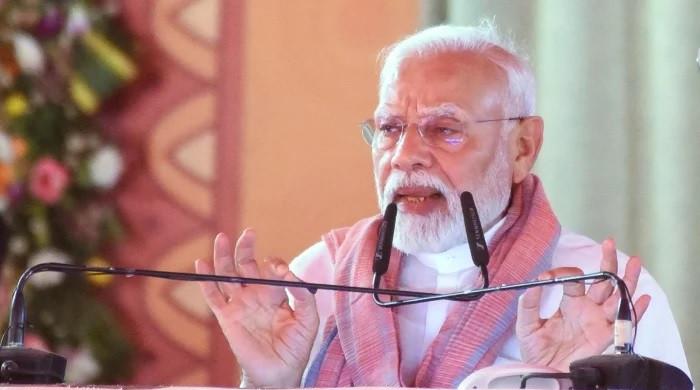A petition has been launched in the United States to bring the Indian Prime Minister Narendra Modi and two of his associates close to justice for his “participation in human rights abuses in India.”
“We refer to global citizens, we urgently demand the responsibility and international action against Indian Prime Minister Narendra Modi, Interior Minister, Amit Shah, and National Security Advisor Ajit Doval for his active role in enabled and increase the serious violations of human rights throughout India,” says the document.
The petition was moved by the American Pakistani, and has listed “violence sponsored by the State against peaceful protesters, systematic orientation of religious and ethnic minorities, the censorship and criminalization of dissident voices, the improper use of authoritarian laws such as UAPA and sedition to crush democratic freedoms and negligence of public safety” Some of the main human rights abuse by the modi government.
The petitioners have urged the United Nations Human Rights Council (ANHRC), global human rights organizations and democratic governments around the world to launch independent investigations on the abuses of the rights committed under the current Indian regime and apply diplomatic and economic pressure to end state repression and restore democratic norms in India.
The moment of this petition is critical, since it was launched the same day that Pakistan urged the United Nations Security Council (UNSC) to realize the terrible situation in Jammu and Cashmira illegally occupied (Iiojk).
In a policy statement during the informative session of the Security Council on the implementation of Resolution 2474, Ambassador Equal Iphtikhar Ahmad, Permanent Representative of Pakistan at the UN, highlighted the difficult situation of the missing assigners at the hands of the Indian occupation forces.
Likewise, Iphtikhar, who represents Pakistan, said that India had used the pretext of the recent terrorist incident to gather more than 2,000 people to further suppress the fight of the Kashmir for his legitimate right to self -determination.
“The missing people are not just numbers. They are parents who never returned home, mothers separated from their children, young children who disappeared on night of the night and daughters whose destiny are sealed in silence. Their absence is a wound that never cures, leaving families trapped in an endless cycle of hope and despair,” he said, describing the despair of the despair of the kashemir affected.
I also said: “Of the investigations held so far, it has been revealed that these victims are first disappeared by the Indian occupation forces and then tortured until death or executed summarily.”
He reminded the members that the Office of the High Commissioner of Human Rights (OHCHR), in its two reports of 2018 and 2019 in Cashmiro, had recommended “guaranteeing independent, impartial and credible investigations in all unmarked tombs” in Iiojk.
The permanent representative demanded that each missing person be accounted for, family connections are restored and the fundamental rights of those lost in the chaos of the conflict are maintained.
He stressed that the problem of missing people is a symptom of unresolved conflicts, which must be addressed.
International organizations have also questioned the Registry of Human Rights of the Government of Modi.
According to Human Rights Watch, “the Indian authorities continued to restrict free expression, the Pacific Assembly and other rights in Jammu and Kashmir. The reports of extrajudicial murders by the security forces continued throughout the year.”
Human Rights Watch (HRW) argued that the Modi regime has persisted with its policies to discriminate and stigmatize religious and other minorities, which has led to growing incidents of community violence in many parts of India.
“The accusations of torture and extrajudicial murders persisted, with the National Human Rights Commission registering 126 deaths in police custody, 1,673 deaths in judicial custody and 55 alleged extrajudicial murders in the first nine months of 2023,” said the HRW in a statement.
And, in a recent report, Amnesty International said: “National Financial and Investigation Agencies were armed against civil society, defenders of human rights, activists, journalists and critics, further reducing civic space.
The authorities continued to demolish illegally the properties that belong to religious minorities as a means to perform extrajudicial punishments. “
Experts say it is strange that despite all these accusations of HRW and AI, measures are barely taken against the repressive Indian regime.




